#at rue royale
Explore tagged Tumblr posts
Text
If I could figure out how to create a poll I’d create one asking folks what they thought about Louis’s money situation on the show.
I personally think he’s pretty well off on that front. But in one of my previous posts, someone in the replies raised the notion that part of the reason why Louis didn’t leave Lestat post ep 5 could be for financial reasons. So I was curious as to what other people think.
#interview with the vampire#iwtv#amc iwtv#louis de pointe du lac#my reasoning#he said he made enough money to retire#and be buried like a pharaoh#we know grace and levi lost their money in the stock market crash#but nothing about if that affected louis#also louis was more business minded#feel like he wouldn't have been taking the same kinds of risks#if lestat was paying the bills#at rue royale#then what exactly would louis's money be doing except sitting somewhere and accuring interest#they say investing is about time in the market#not timing the market#and he's an immortal vampire who has all the time in the world...
26 notes
·
View notes
Text

I just wanna say that
#interview with the vampire#iwtv#amc iwtv#iwtv spoilers#amc immortal universe#amc interview with the vampire#iwtv fandom#the vampire lestat#lestat de lioncourt#iwtv lestat#ldl#rockstar lestat#prince lestat#brat prince#the vampire louis#louis de pointe du lac#iwtv louis#ldpdl#loustat#lestat x louis#iwtv series#iwtv s1#sam reid lestat#sam reid#jacob anderson#raleigh ritchie#anne rice#rolin jones#the vampire chronicles#rue royale
3K notes
·
View notes
Text

pov: unholy family invites you over for dinner
#would you accept 👀#i'm obsessed with rue royale era and also their townhouse gate for some reason#interview with the vampire#louis de pointe du lac#lestat de lioncourt#claudia#unholy family#shorelle draws
467 notes
·
View notes
Text


Interview with the Vampire / Nona the Ninth
#also this but that’s just my eternal tlt brainrot#text#iwtv#claudia de pointe du lac#the locked tomb#gideon nav#don’t ask me about my colouring system it’s fucked#rue royale household
279 notes
·
View notes
Text



It’s my brother’s funeral.
#interview with the vampire#iwtvedit#loustat#otp: all my love belongs to you#my edit#my gifs#lestat de lioncourt on his balcony every night robe on hair whipping in the wind#gazing forlornly down rue royale hoping to catch a glimpse of louis in the distance#i'm fine
393 notes
·
View notes
Note
I would LOVE to read your analysis of louis as byronic hero as apposed to his reading as gothic heroine. lots of the latter and zero of the former in the fandom.
Sure! Mmm, okay, so –
What are we talking about when we talk about Gothic Heroes?
When we talk about gothic heroes, we’re really talking about three pretty different character archetypes. All three are vital to the genre, but some are more popular in certain subgenres i.e. your Prometheus Hero may be more common in gothic horror, whereas your Byronic Hero might be more likely to be found in gothic romance. That’s not to say they’re exclusive to those subgenres at all, and there is an argument that these archetypes themselves are gendered (in many ways, I think people confuse Anne being an author of the female gothic with Louis being a gothic heroine, but I’ll get into that later), but this is also not necessarily something that’s exclusive.
Anyway, I’m getting ahead of myself, haha, so the three gothic hero archetypes are:
Milton’s Satan who is the classic gothic hero-villain. You can probably guess from the name, but he was originated in John Milton’s 1667 poem, Paradise Lost. He is God’s favourite angel, but God is forced to cast him out of heaven when he rebels against him. As an archetype, he’s a man pretty much defined by his pride, vanity and self-love, usually fucks his way through whatever book or poem he’s in, has a perverted, incestuous family, and a desire to corrupt other people. He’s also defined as being “too weak to choose what is moral and right, and instead chooses what is pleasurable only to him” and his greatest character flaw, in spite of all The Horrors, is that he’s usually easily misguided or led astray. (I would argue that Lestat fits into this archetype pretty neatly, but that’s a whole other post.)
Prometheus who was established as a gothic archetype by Mary Shelley with Frankenstein in 1818. Your Prometheus Hero is basically represented by the quest for knowledge and the overreach of that quest to bring on unintended consequences. He’s tied, of course, to the Prometheus of Greek myth, so you can get elements of that in this character design too in that he can be devious or a trickster, but the most important part of him is that he is split between his extreme intelligence and his sense of rebellion, and that his sense of rebellion and boundary pushing overtakes his intelligence and basically leads to All The Gothic Horrors.
And the Byronic Hero, who as the name implies, was both created by and inspired by the romantic poet, Lord Byron in his semi-autobiographical poem, Childe Harold’s Pilgrimage which was published between 1812-1818. The archetype is kind of an idealized version of himself, and as historian and critic Lord Macaulay wrote, the character is “a man proud, moody, cynical, with defiance on his brow and misery in his heart, a scorner of his kind, implacable in revenge, yet capable of deep and strong affection.” Adding to that, he’s often called ‘the gloomy egoist’ as a protagonist type, hates society, is often self-destructive and lives either exiled or in a self-exile, and is a stalwart of gothic literature, but especially gothic romance. Interestingly too, in his most iconic depictions he’s often a) darkly featured and/or not white (Heathcliff being the most obvious example of this given Emily Bronte clearly writes him as either Black or South Asian), and b) is often used to explore queer identity, with Byron himself having been bisexual.
Okay, but what about the Gothic Heroine?
Gothic heroines are less delineated and have had more of an evolution over time, which makes sense, given women have consistently been the main audience of gothic literature and have frequently been the most influential writers of the genre too. The gothic genre sort of ‘officially’ started with Horace Walpole’s 1764 novel, The Castle of Otranto and Isabella is largely regarded as the first gothic heroine and the foundation of the archetype, and the book opens even with one of the key defining traits – an innocent, chaste woman without the protection of a family being pursued and persecuted by a man on the rampage.
The gothic heroine was, for years, defined by her lack of agency. She was innocent, chaste, beautiful, curious, plagued by tragedy and often, ultimately, tragic. Isabella survives in The Castle of Otranto, but she’s one of the lucky ones – Cathy dies in Wuthering Heights, Sybil dies in The Picture of Dorian Gray, Justine and Elizabeth both die in Frankenstein, Mina survives in Dracula, but Lucy doesn’t. There’s an argument frequently posited that the gothic genre was, and is, about dead women and the men who mourn them, and Interview with the Vampire certainly lends itself to that pretty neatly.
Of course, the genre has evolved, and in particular by the late 1800s, there was a notable shift in how the Gothic Heroine was depicted. The house became a place of imprisonment where they were further constrained and disempowered, she was infantilized and pathologized and diagnosed as hysterical, and as Avril Horner puts it in her excellent paper, Women, Power and Conflict: the Gothic heroine and ‘Chocolate-box Gothic’, gothic literature of this era “explores “the constraints enforced [by] a patriarchal society that is becoming increasingly nervous about the demands of the ‘New Woman’.”
This was an era where marriage was increasingly understood in feminist circles to be a civil death where women were further subjugated and became the property of their husbands. This was explored through gothic literature as the domestic space evolved into a symbol of patriarchal control in the Female Gothic.
Female Gothic vs Male Gothic
Because here’s the thing – the female gothic and the male gothic are generally understood to be two different subgenres of gothic literature.
While there are plenty of arguments as to what this entails, the basics is that the male gothic is written by men, and usually features graphic horror, rape and the masculine domination of women and often utilises the invasion of women’s spaces as a symbol of further penetrating their bodies, while the female gothic is written by women, and usually features graphic terror, as opposed to horror, while delving more specifically into gender politics. More than that though, its heroines are usually victimized, virginial and powerless while being pursued by villainous men.
The Female Gothic as a genre is also specifically interested in the passage from girlhood to female maturity, and does view the house as a place of entrapment, but she is usually suddenly “threatened with imprisonment in a castle or a great house under the control of a powerful male figure who gave her no chance to escape.”
That’s not Louis’ arc, that’s Claudia’s arc twice over, first with the house at Rue Royale, then with the Paris Coven, and Lestat and Armand aren’t the only powerful male figures who imprison her.
Claudia as the Gothic Heroine
Claudia in many ways is the absolute embodiment of the classic gothic heroine. Even the moment of their meeting is a product of Louis’ Byronic heroism – his act of implacable revenge against the Alderman Fenwick which prompts the rioting that almost kills her. She’s a victim of Louis’ monstrousness before they’ve even met, and while he saves her, he arguably does something worse in trapping her in the house with both himself and Lestat, holding her in an ever-virginal, ever-chaste eternal girlhood, playing into Lestat’s Milton-Satan by enhancing the perversion of family and ultimately infantilizing her out of his own desire for familial closeness.
Claudia has no family protection before Louis and Lestat – a staple of the gothic heroine – she is completely dependent on them in her actual girlhood, and again in adulthood, never developing the strength to be able to turn a companion, to say nothing about the sly lines here and there that further diminish and pathologise her (Lestat calling her histrionic, Louis making her out to be a burden, etc.). This is all further compounded again with the Coven, and when the tragedy of her life ultimately leads to the tragedy of her death.
Louis as the Byronic Hero
Not to start with a quote, but here’s one from The Literary Icon of the Byronic Hero and its Reincarnation in Emily Bronte’s Wuthering Heights:
“Generally speaking, the Byronic hero exhibits several particular characteristics. He does not possess heroic virtues in the usual, traditional sense. He is a well-educated, intelligent and sophisticated young man, sometimes a nobleman by birth, who at the same time manifests signs of rebellion against all fundamental values and moral codes of the society. Despite his obvious charm and attractiveness, the Byronic hero often shows a great deal of disrespect for any figure of authority. He was considered "the supreme embodiment [...] standing not only against a dehumanized system of labor but also against traditionally repressive religious, social, and familial institutions" (Moglen, 1976: 28).
The Byronic hero is usually a social outcast, a wanderer, or is in exile of some kind, one imposed upon him by some external forces or self-imposed. He also shows an obvious tendency to be arrogant, cunning, cynical, and unrepentant for his faults. He often indulges himself in self destructive activities that bring him to the point of nihilism resulting in his rebellion against life itself. He is hypersensitive, melancholic, introspective, emotionally conflicted, but at the same time mysterious, charismatic, seductive and sexually attractive.”
Louis as he exists in the show to me is pretty much all of those things, and I think to argue that he’s a gothic heroine not only diminishes Claudia’s arc, but robs Louis of his agency within his own story. Louis chooses Lestat, over and over again, he’s not imprisoned by the monster in the domestic sphere, he is one of the monsters who’s controlling the household, including making decisions of when they bring a child into it and when Lestat gets to live in it – he wanted to be turned, he wanted to live with Lestat in Rue Royale, and while there are certainly arguments to be made about their power dynamic within the household in the NOLA era, importantly Louis actually gained social power through his marriage to Lestat, particularly through The Azaelia, he didn’t lose it in the way that’s vital to the story of the gothic heroine.
Daniel Hart even said it in a recent twitter thread about Long Face, but there is an element of Lestat and Louis’ relationship that is transactional, and to me, for that to exist, they both have to have a degree of control over their circumstances and choices in order to negotiate those transactions. Claudia is the one who can’t, she’s the one who’s treated effectively as property, and she’s the one who lacks control over her circumstances.
While you could perhaps argue the constraints of the apartment in Dubai lend more to the gothic heroine archetype, I’d argue it as furthering the Byronic trope again by being representative both of Louis’ self-destruction and self-imposed exile. As Jacob has said a few times, Louis does seem to have known to a degree that Armand was involved in Claudia’s death on some level, and it’s that guilt and misery that has him allowing Armand his degree of control. The fact that Louis was able to leave Armand as easily and as definitively as he was I think demonstrates that distinction too – after all, to compare that ending to Claudia’s multiple attempts to leave the confines of the patriarchal house, both in Rue Royale and Paris, which were punished at every turn – first by her rape, then by Lestat dragging her back off the train, and then by the Coven orchestrating her murder.
Louis gets to leave because Louis can leave, he has both the social and narrative power to, and the fact that he does is, to me, completely at odds with the gothic heroine. Louis can, and does advocate for himself, Louis is proud, moody, cynical. Defiance is a key part of his character, just as his exile from NOLA society due to his race, and his chosen rejection of vampire society in Paris, is. He’s intelligent and sophisticated, travels the world, and has misery in his heart, guilt that eats him up, and self-destructive tendencies. That’s a Byronic Hero, baby!
#i also agree with jacob when he says he has a lot more power in his relationship with lestat than he'd admit to#i also think the house in rue royale is both constraining AND liberating for louis#as he's able to live with a sort of honesty he couldn't in his mother's house#lestat wields a lot of power in it of course but louis does too#i could keep talking about this but i think that's probably enough for this morning haha#louis de pointe du lac#amc interview with the vampire#iwtv asks#claudia de pointe du lac#welcome to my ama
248 notes
·
View notes
Text


staring long and hard at these photos like they might eventually tell me what sort of emotional catharsis im in for
#this is rue royale right?#goddamnit gay men's wardrobes make it so difficult to ascertain the era!#yo mismo#iwtv#amc iwtv#interview with the vampire#yomismoiwtv#vampterview
152 notes
·
View notes
Text



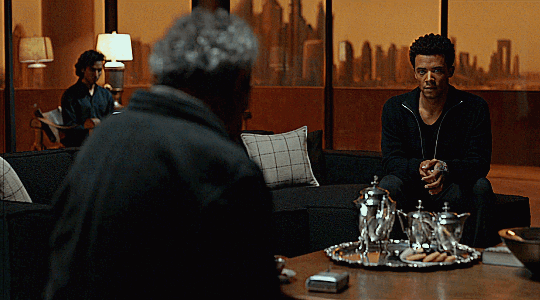

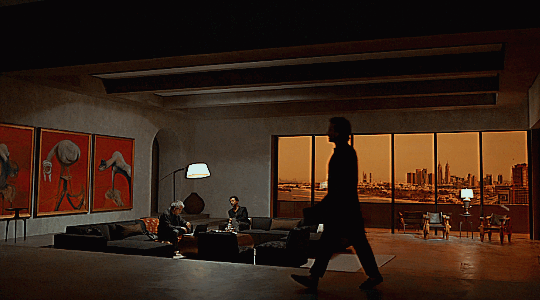








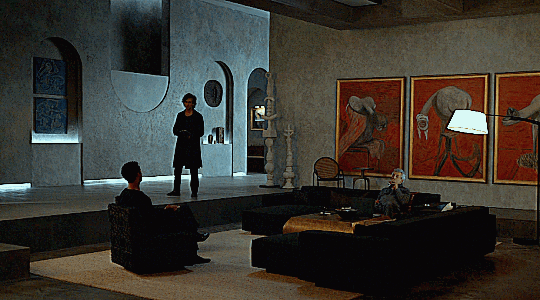

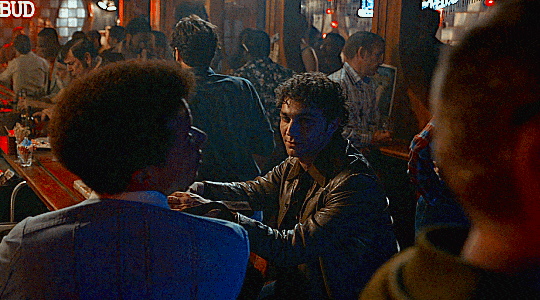
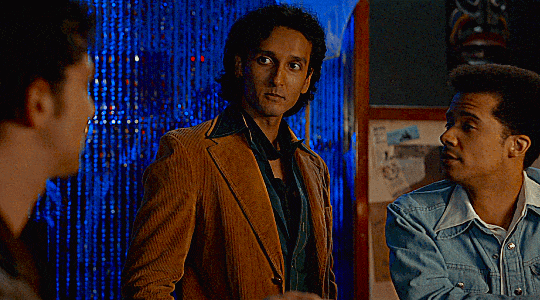
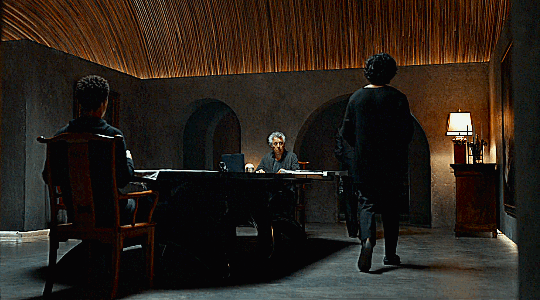
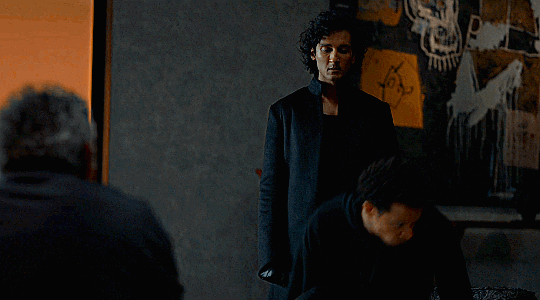
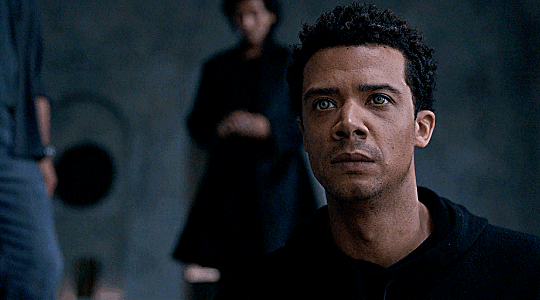



So, you're bouncing around ideas, and then it all clicks into place. It's a two person play in Season 1 that becomes a three-person play.
#spiritual sister to the rue royale trio gifset#iwtvedit#iwtv#interview with the vampire#louis de pointe du lac#armand#daniel molloy#rashid#beegifs#jacob anderson#assad zaman#eric bogosian#loumaniel#dubai trio#danlou
713 notes
·
View notes
Photo
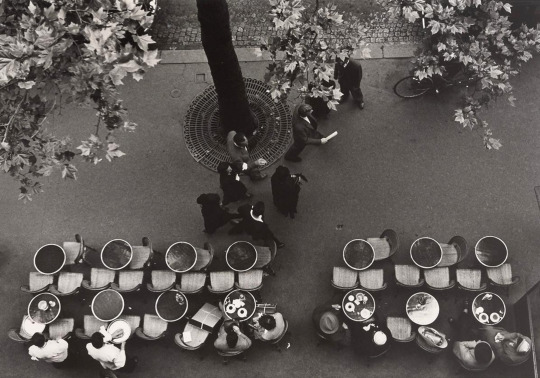
Rue Royale, 1953. Frank Welch. Gelatin silver.
#rue royale#Black and White#Paris#photography#street scene#city scenes#photographie#1950s#people#foto#fotographie
1K notes
·
View notes
Text
I think the sad thing about the Rue Royale family is that they really are operating the best that they can considering everyone’s circumstances.
Take Claudia for example: She’s a 14 year-old orphan who has never ever been loved. She was abused from the moment she could crawl by her aunt, exposed to creepy uncles at the boarding house, and has had 0 friends. A goose egg. Louis and Lestat were the first people. Ever. To love her. The only people who would care if she died. And they loved her. They poured all the devotion that bounced off each other’s defence mechanisms onto The Child.
So she’s a spoiled teenage apex predator who has had zero socialization her own age trapped in eternal homeschooling with BPD The Clown and the vampire embodiment of self-loathing. She was never going to be Normal. The fact that she grows up to be so socially capable is really a testament to her willpower.
And they’re fucking trying to raise her right too! Lestat’s parents did not give a shit about him. If he wasn’t being abused he was being neglected. Beatings, withholding food, withholding love*, he never learned how to read! So he feeds Claudia, he teaches her to drive, to play chess, to play piano—all the things he is proud of. All that nourishes his soul he gives to Claudia. He gives her a priceless amulet all while thinking she’s impermanent. That she won’t last.
And then there’s Louis. Louis who always had the expectations of “carrying the family line”. Louis who was told to marry a woman named Hazel by Paul the moment before he died. Louis, whose familial and social rejection for what he is (in layers) sent him spinning out in self-destruction and what he find on the brink of annihilation was Claudia. His beautiful daughter. She’s the embodiment of all his hopes and dreams. Only child to all the expectations of an eldest child. He brings her to the lake his dad took him and Paul to when he was a child and they catch fireflies. He does her hair and he dresses her like the little rich girl he’s always wanted to parade around at church.
But Claudia is a person, not a doll.
And Louis is still caught up in the living drama of his family. Louis spends Claudia’s entire life mourning the mortal man he never was. He wants to make his mother proud. He wants her forgiveness for Paul. He wants to be there for his sister and her family, and he wants to be a married man with a child of his own. His war with his own nature extends to his family. He cannot accept being a vampire the same way his mother never accepted his queerness. And, just like his mother, he withdraws love as punishment when his family does not follow his rules. He cannot accept a daughter with sadistic house cat tendencies, and he can’t accept the horny Shakespearean menace he married. He punishes Lestat when Claudia goes off to college (typical empty nester behaviour) and he punishes Claudia when she starts having a life outside of him in Paris.
And yet! They were happy! For years! Happy until what was always going to happen happened. Lestat has always had a wandering dick and Claudia was always going to want independence and companionship outside of her parents and Louis was always going to be jenga tower of emotional stability. On a tight rope of personality disorders and abusive upbringings they actually lasted longer than a lot of vampire covens.
110 notes
·
View notes
Text

Rue Royale, Paris, Rain, Frank Armington, 1925
#art#art history#Frank Armington#Frank Milton Armington#rain#rain scene#street scene#cityscape#Paris#France#Rue Royale#Canadian art#Franco-Canadian art#20th century art#oil on canvas
269 notes
·
View notes
Text
Betrothal - The Start of Obligation
Dream cast a nervous glance at his brother, fiddling with one of the pearls adorning his sleeves as the finishing touches were applied. His voice was light but tinged with uncertainty, struggling to sound casual as he broke the silence between them. “This is to be quite the night,” Dream murmured, his smile soft though his fingers twisted around one another. “Mother has gone all out, hasn’t she? Every lord and lady in the kingdoms, all here for… for your betrothal.” He swallowed, glancing at Nightmare’s face for some hint of a shared excitement, a thread of sympathy. Nightmare’s one good eye shifted to his twin, its indigo gleam patient but not particularly interested. He let out a low hum, barely acknowledging the bustling staff adjusting the length of his coat, making sure each fold lay perfectly. The inky shadows dripping from his brow and hands stirred with some unknown agitation, despite his calm demeanour. “Hm. It’s what’s expected,” Nightmare replied, his voice deep and distant, as though he were speaking more to the shadows pooling at his feet than to his brother. “Mother wouldn’t have it any other way. A display of wealth, a testament to our standing, and…” He trailed off, a hint of something inscrutable crossing his face. “My betrothal, as you say.” Dream let out a breath, attempting to keep his voice bright, his usual optimism tempered with the reality of what lay before them. “Yes… but it is something of a celebration too, isn’t it?” He smiled, though it looked strained, casting his gaze to the mirror, where Nightmare’s attire stood out like a shadow against his own lightness. “A new chapter, perhaps. A sign of unity, of…” “Obligation,” Nightmare interrupted, his eye narrowing as he glanced at Dream’s reflection. The tendrils at his back coiled a little tighter. “I am to be a ruler, not a poet. And this ball? It’s a pageantry for others’ sake, not mine.” His voice softened slightly, almost lost amid the rustling fabrics and faint murmurs of the hand staff. “That is what is expected.”
am i gonna write a whole fic on this? no. am i enjoying writing the odd scene here and there as i imagine it? yep. So, little drabbles i spend small amount of times on, where i scrabble for words that fit lol
#undertale au#undertale#nightmare sans#nightmare!sans#dream sans#dream!sans#dreamtale#dreamtale sans#betrothal#betrothal au#royal au#my au#writting#writing drabble#rue rambles#ig#future bsp
34 notes
·
View notes
Note
So Barbie has to be a rebel right? Surely she doesnt want to kill her wives.
well it's complicated but technically she's a royal! bluebeard has taught her about the dangers of betrayal and made sure she grew up to be suspectful and untrusting. because of her upbringing she's led to believe that there is nothing bad about her father's actions and she's very tragically loyal to him which is why she wants to follow her destiny to not disappoint him. deep inside however she can't help but silently hope to find someone who won't betray her for the sake of their "selfish curiousity" so that her fate can be avoided altogether
#she has this entire realization arc you know it goes#she's a little bit like duchess not willing to let go of her royal title but not being entirely pleased about her fate either#ocs: eah#oc: barbie#rue answers
22 notes
·
View notes
Text
yes Lestat's #patriarch but listen. listen. Louis is literally rich husband writing checks for his wife's monthly allowance. he's "I let her decorate the house don't ask me about the drapes" . Lestat will take Claudia out to kill people and stop outside the door of the Rue Royale house to go "remember, this spree is our little secret, if your dad asks we only got one dress (murder but also dress)". Lestat sees Claudia grow up and sees himself in her. Claudia grows up and realises that to Louis she is still daddy's little girl.
#you are working under a false dichotomy of gender roles but if you want to work it dont be reductionist#the dynamics are different in the show obviously but im not talking abt that#idk just very frustrating to see posts going “louis is the womancoded one” bc sure there are elements of that#but also neither of them. is a woman. and if you write out “gendered characteristics” for them (esp during rue royale era)#ESP as it pertains to their relationships with and around claudia#youll get a fine mix#louis de pointe du lac#lestat de lioncourt#vampire chronicles#will i regret posting this? only time will tell
199 notes
·
View notes
Text




kids when they get psychosexually tangled up in the romantic lives of their parents <3
#dubai trio#rue royale household#text#interview with the vampire#claudia de pointe du lac#daniel molloy#also the flavour of psychosexual antagonistic relationships claudia and daniel develop with their vampire dads…#and largely in defence of louis.
60 notes
·
View notes
Text

my loustat playlist is such a mess honestly
28 notes
·
View notes